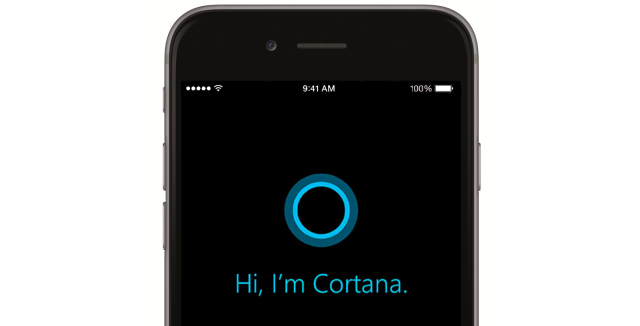
Cortana on an iPhone.
Microsoft’s Cortana voice assistant is clearly winding down—the feature is still available in the desktop versions of Windows, but it’s no longer included in a default install of Windows 11, and the mobile app was discontinued back in March.
But the future once looked bright for the chipper virtual assistant, according to former Microsoft Product Manager Sandeep Paruchuri in an interview with the Big Bets newsletter. Paruchuri speaks at length about Cortana’s development as a feature for Windows Phone 8.1 from its beginnings as a passion project with a small team.
The Cortana feature was only officially called “Cortana” after the codename leaked during development—another early suggestion was “Alyx,” and then-CEO Steve Ballmer tried to name it “Bingo” as a “parting gift” before handing the reins to current CEO Satya Nadella. (Ballmer had “poor product taste,” says Paruchuri, in what we in the tech biz call “an understatement.”) Cortana’s developers were inspired by Siri but wanted their voice assistant to be more proactive, making suggestions based on context and user data rather than merely responding to direct input. The team also wanted Cortana to have more of a personality than Siri or Google Now, which was helped along by Cortana’s Halo voice actor, Jen Taylor.
Paruchuri ultimately blames a loss of focus and “dilution” for Cortana’s decline. “Everything that was right about the first release went wrong for the second release,” he said, as product managers from across Microsoft tried to get their ideas into Cortana, and it was adapted for platforms (like the PC and Xbox) where its proactive contextual features made less sense. Microsoft eventually used the “Cortana” branding for such a wide range of different technologies that “the name ceased to stand for anything at all.”
The interview is also interesting as a snapshot of a crucial period for Windows Phone’s development. Microsoft was stuck transitioning its still-fresh Windows Phone operating system from the Windows CE-based version 7 to the Windows NT-based version 8. This was an important move to make, but that involved nearly two years of development time working on the operating system’s underpinnings at a time when both iOS and Android were still developing rapidly and adding big, splashy new features from year to year. Cortana was also hurt by Microsoft’s continually shifting product strategy, which, according to Sandeep, had “shifted away from the original high-end US focus to an emerging markets focus” by the time the US-only Cortana feature was getting ready to ship.



